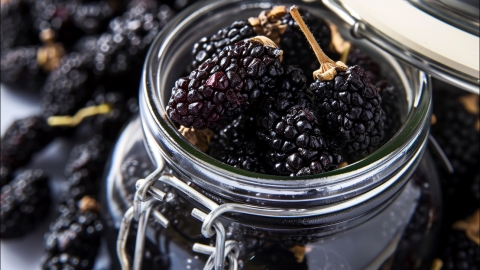Can soaking dried mulberries in water nourish the kidneys?
Generally, soaking dried mulberry fruits in water may have certain auxiliary effects in nourishing the kidney, but it cannot replace formal medical treatments. The detailed explanation is as follows:

Mulberry fruit has a sweet and sour taste and is cold in nature. It acts on the heart, liver, and kidney meridians, possessing functions of nourishing the liver, benefiting the kidney, promoting the production of body fluids, and relieving dryness. Dried mulberries retain their nutritional components, which can dissolve into water and be absorbed by the body when soaked and consumed. From the perspective of nutritional components, dried mulberries contain abundant glucose, sucrose, fructose, carotene, vitamins, and minerals such as iron, calcium, and phosphorus. These nutrients provide energy and nutritional support to the body, helping maintain the normal physiological functions of the kidneys. For symptoms such as dizziness, tinnitus, soreness and weakness of the waist and knees, and premature graying of hair caused by kidney yin deficiency, moderate consumption of soaked dried mulberries may help alleviate discomfort to some extent.
The kidney-nourishing effect of soaked dried mulberries is auxiliary and cannot replace drug treatments for kidney diseases. Additionally, due to their cold nature, individuals with spleen and stomach deficiency-cold syndromes or prone to diarrhea should avoid excessive consumption to prevent aggravating gastrointestinal discomfort. Moreover, dried mulberries have a high sugar content, so people with diabetes should consume them cautiously to avoid blood sugar fluctuations. Consumption should also be controlled in quantity to prevent adverse effects from excessive intake.






